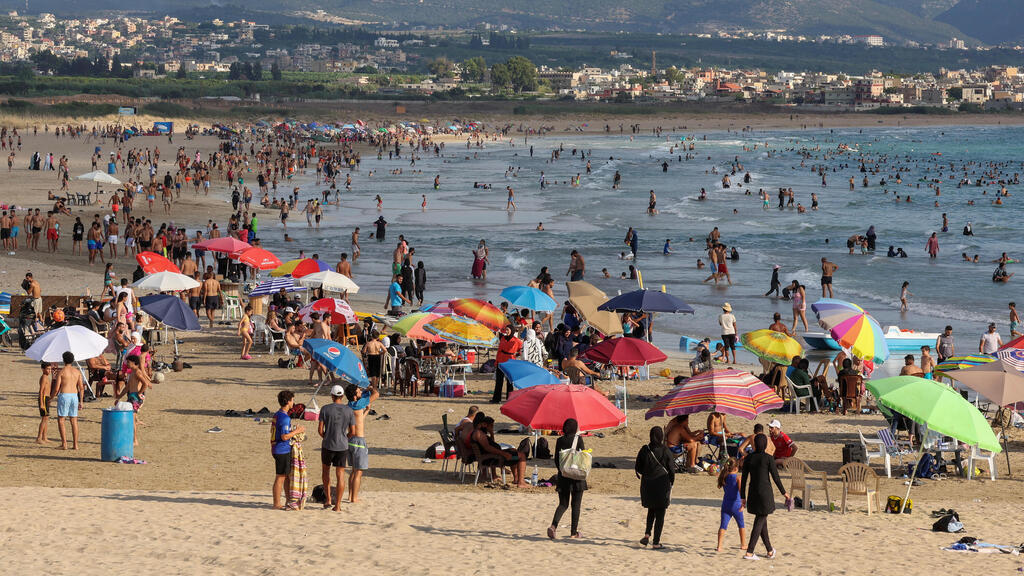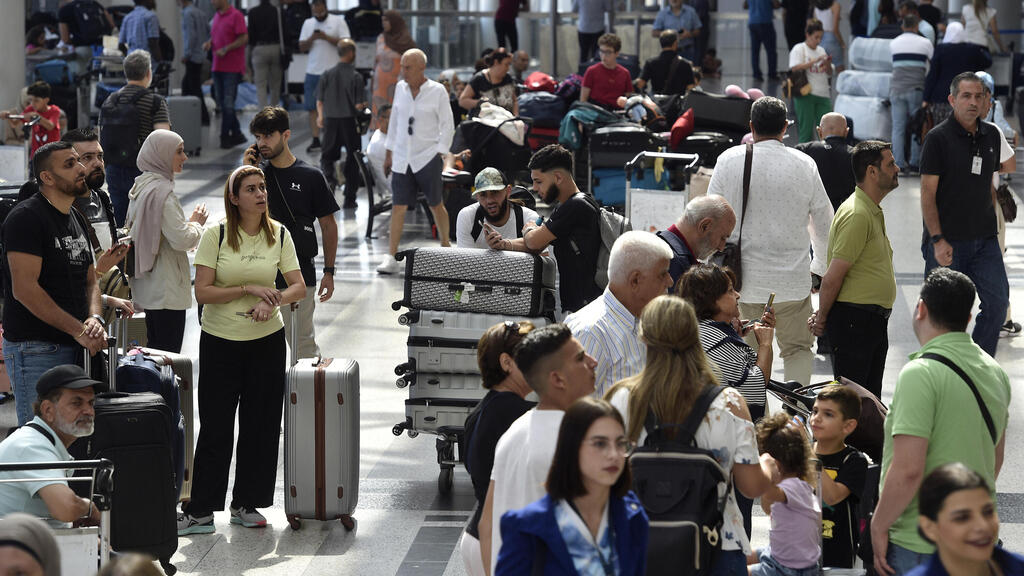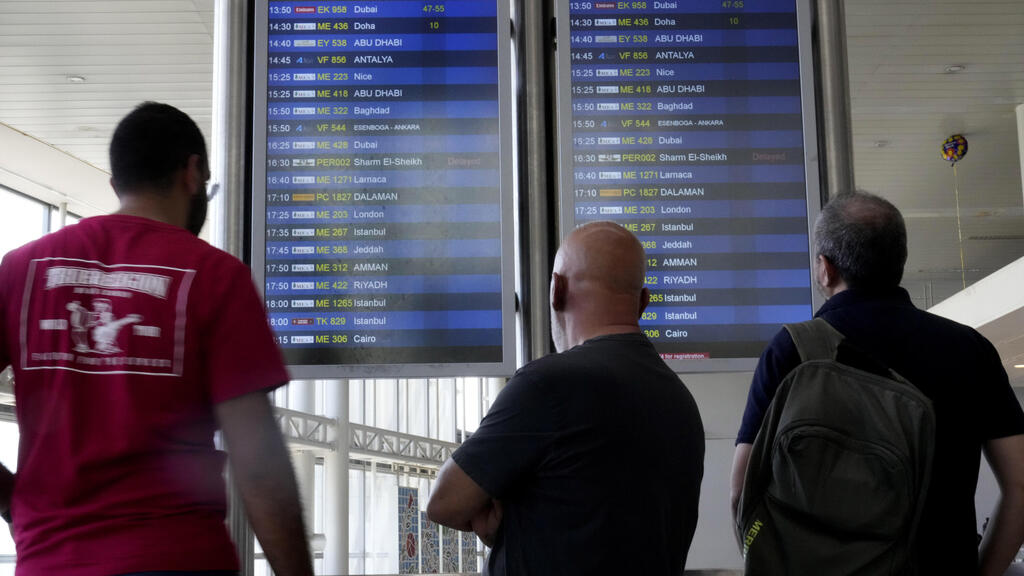Getting your Trinity Audio player ready...
While Israel is tensely waiting for a retaliatory attack by Iran and Hezbollah, voices in Lebanon sway from panic in Beirut to those in Tyre saying they aren’t afraid of a possible conflict. “Look at the beachgoers, they aren’t afraid,” some said.
"It is just very sad, oh God, the situation is really sad. We get out of a crisis, we go into another one," Sherin Malah, a Lebanese citizen living in Italy who had come to Lebanon to visit her mother and was heading home early, told the Reuters news agency.
But others in Lebanon appeared more relaxed. Along the sandy coastline of Lebanon's port city of Tyre, about 20 km (12 miles) from the border with Israel, children splashed in the water as plumes of black smoke from Israeli shelling further south curled up from the hills behind them.
Tyre resident Ghalib Badawy added, "As for the current situation, as you can see, all the people are by the beach, this land is our land, and we will not leave it.”
"The roads and bridges might be attacked like in the 2006 war; we don't need tension," said Rina, 51, who lives near Beirut's Dahieh district, in an article published on Sunday in London-based Saudi outlet Asharq Al-Awsat.
It reported that Hezbollah commander Fuad Shukr’s assassination last week caused Beirut residents to relocate to empty homes near the resort town of Hammana in the Lebanese mountains, which their owners mainly use on weekends.
Some residents, according to the report, are moving to homes they previously rented for the summer vacation period, while others are looking for furnished apartments and hotels to stay in until the threat passes.
Nur, 26, said she began looking for a furnished apartment for her family in the Lebanese mountain area the day after the assassination. "There are many apartments available for rent, but the demands are very high. Rental prices have tripled, we're talking about $1,200 a month."
Besides Lebanese citizens, a flood of foreign nationals from Beirut through Rafic Hariri Airport also began following travel warnings issued by several countries calling on their citizens to leave Lebanon "by any means possible." Japan and Turkey joined the list on Monday.
In another article on preparations in Lebanon, the same media outlet wrote, "Citizens are rushing to buy food, medicines, and fuel." The newspaper spoke with Mohammad Shakir, a former minister and "head of economic bodies in Lebanon," who said, "There are enough food supplies in the markets for 3-6 months.”
"People rushing to stock up on food and medicines creates confusion and causes a reduction in reserve stocks in warehouses," he added. It was also added pictures of empty supermarkets were spread on social media and that a shipment of emergency aid from the World Health Organization, including 32 tons of medical equipment and medicines, arrived in Lebanon.





